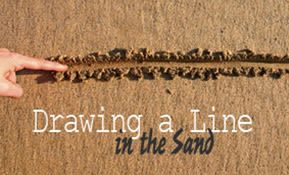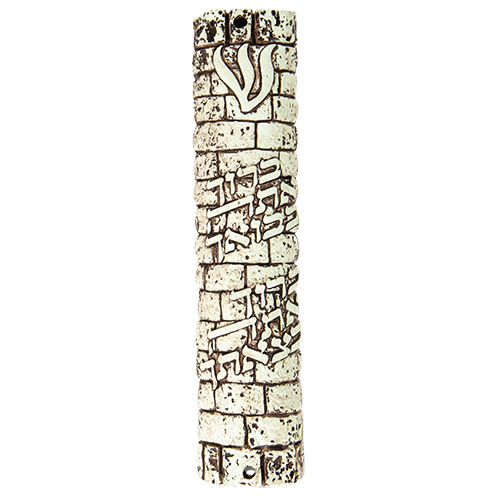
Bo – PostIt Notes for the Soul
Lots of people cry during graduations. Contemplating the sunset of any particular stage in life always causes me try to hold on to whatever I can...

Lots of people cry during graduations. Contemplating the sunset of any particular stage in life always causes me try to hold on to whatever I can as I recall the lyrics of a popular song, “I can’t remember all the times I tried to tell myself to hold on to these moments as they pass.”
We can gauge the value of our experiences by the impression they leave on us. If we worked hard through high school and then wasted our time in college, we end up losing much of the positive growth we experienced in high school. Although getting through the education system may seem like a miracle, it pales in comparison to those miracles the Jewish people underwent as the “graduated” from Egyptian slavery to becoming free individuals. For the positive impact of the Exodus not to be lost, the Jewish people were commanded to re-live it on a daily basis.
The mitzvah of tefillin is introduced towards the end of parshat Bo. Briefly, tefillin are two small black boxes with black straps attached to them. The boxes contain parchments with paragraphs of the Torah written on them. Each weekday morning, Jewish men are required to place one box on their head and tie the other one on their arm. The biblical origins of tefillin are as follows: God instructed us to remember all that occurred as we left the Land of Egypt, to teach it to our children and to “bind it as a sign on your arm and an ornament between your eyes, for with a strong hand God removed us from Egypt.” In addition to this commemoration, we recall the exodus twice a day during our recital of the Shema.
Everyone enjoys reminiscing, but do we really have to dwell on the past on a daily basis?
The Torah verses contained within the tefillin are the very essence of our Judaism. It is a declaration of our belief in God and an explanation that because God took us from Egypt, we are obligated to behave in a specific manner. We bind these concepts to our arm and between our eyes. This is to remind us that we should understand the redemption, and as a result, act accordingly. Clearly, the tefillin serve as spiritual post-it notes, but why do we need a daily review?
It's Not Normal to be Normal
I recently heard a friend express his frustration of the campus scene. He finds the drunken debauchery and wishy-washy morality that is so often associated with the higher levels of learning disgusting and wishes that he was normal and could enjoy this stuff like everyone else.
I was flabbergasted! In addition to being a place of higher education, college is supposed to teach responsibility, maturity, and other important lessons necessary to become the future guardians of society. Today, however, anyone who attempts to maintain a semblance of modesty feels abnormal. Shouldn't it be the other way around?
The lesson is obvious; we are influenced by our environment. The things we experience on a daily basis shape our perception of the world. For that reason, we recall the miracles experienced by our ancestors. At the same time, however, we must understand how these miracles deal with the spiritual challenges we face today.
Over the past three thousand years the opponents of the Jews and the Jewish God have not deviated much in their arguments. In early history, just like today, people argued that God doesn’t exist and that the world had always existed. Some like to believe it was all a big cosmic coincidence. Others recognize a higher power that is not in direct control of reality and could care less about the minutia of this world. These viewpoints, presented as the norm to the disconnected Jewish soul, appear reasonable. The Exodus, however, disproves each point.
God Controls Nature
Through the ten plagues, God demonstrated His direct control over nature. Each year at the Pesach Seder, we declare say that God Himself, and no intermediary, killed the firstborn of Egypt. During the Exodus, the relationship between God and the Jewish people was as tangible as the ground we stand on and the air we breathe. Each day we recall the way He interacted with humanity during those miraculous days, serving as a constant reminder of who He is, who we are, and why we are obligated to behave in a lofty manner. Reciting the Shema and donning tefillin are not just reminders of our common history. They are opportunities for us to pierce the darkness for a few moments to shed light on who we really are.
The miracles that accompanied us and resulted in our exodus from Egypt were so earth-shattering that they should inspire us anew each day to grow and develop. God broke the laws of nature to teach us how to behave. People are quick to say that God can’t control or doesn’t care about the nuances of our everyday life. With razor-sharp precision, God repaid the Egyptians measure for measure for the suffering they had imposed upon us. He left the Egyptians disgraced and disheveled; a defeated nation, while their lowly slaves received the Torah at Mt. Sinai. Who could claim that God doesn’t care about His people?
Imagine eager concert-goers pushing, yelling, and fighting for a chance to touch the hand of their favorite rock star. If one could become that enthusiastic about some dude who can pluck a guitar and pose for posters, imagine the passion we should feel in knowing that God Himself personally delivered us from evil and gave us the tools to lead the perfect life. He wasn’t disconnected. It wasn’t a momentary handshake on His way up to center stage. God created the stage of human history and the physical world to revolve around us. What could be more inspiring than that?
The mitzvah of tefillin, and the daily recitations of the Shema, and the obligation Jews have to teach their children about the miracles that God did for us in Egypt, serve as post-it notes for the soul of the everlasting implications of these miracles. May the miracles of the past resonate with us and may we learn how to appreciate and attempt to make ourselves worthy of such a lofty opportunity.












Tell us what you think!
Thank you for your comment!
It will be published after approval by the Editor.